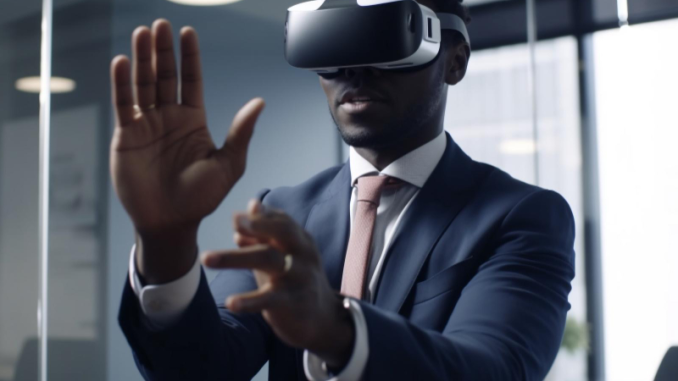
The concept of the metaverse, a virtual shared space that combines aspects of social media, online gaming, augmented reality, and virtual reality, is rapidly evolving.
Africarare.oi, South African owned Open Metaverse, is a quintessential African virtual space, where users are the architect of their own world. Inside the virtual space users are able to to craft their own experiences, events and enterprises that resonate with their unique vision.
Multiple revenue creating opportunities can be accessed through the platform. Engaging retail experiences, also provide ample opportunity for artists, creatives and vendors to sell their products in immersive virtual shops.
The world is designed according to an African blueprint simulating the characteristics of rich African landscapes, infrastructures, cultural and geographical elements.
Within the African context, the concept of the Metaverse is fairly new – a history of the South African virtual world Ubuntuland is available for further reading. However, South Africa’s restricted digital infrastructure and connectivity is a major factor that is a main contributor to the delay in advancements.
Nigeria is seeing a rise in start-ups leveraging VR for various applications, Kenya, Egypt and Ghana have also developed technology to integrated it in various sectors.
Africa, with its burgeoning tech scene, is not lagging behind in embracing and shaping the metaverse. Here are five new developments in the African metaverse that showcase the continent’s innovation and technological progress.
- Digital Inclusion Initiatives:
In an effort to bridge the digital divide, several African countries are implementing digital inclusion initiatives within the metaverse. These programs aim to provide virtual spaces accessible to all, fostering a more inclusive online environment.
From educational platforms to social hubs, these initiatives prioritize bringing connectivity to remote areas and marginalized communities, ensuring that the benefits of the metaverse are enjoyed by a diverse range of people.
- Virtual Cultural Experiences:
African countries are leveraging the metaverse to showcase and preserve their rich cultural heritage. Virtual museums, art galleries, and historical recreations allow users to explore and interact with African history and traditions.
This not only serves as a means of cultural preservation but also presents an opportunity for global audiences to engage with and appreciate the diversity of African heritage.
- Blockchain and Digital Assets:
The integration of blockchain technology is transforming how assets are managed within the African metaverse. From virtual real estate to unique digital art pieces, blockchain ensures transparent ownership and facilitates secure transactions.
African developers are exploring the potential of blockchain-based currencies and non-fungible tokens (NFTs) to empower content creators and entrepreneurs in the digital space.
- E-commerce and Virtual Marketplaces:
The metaverse is becoming a thriving space for virtual commerce in Africa. Entrepreneurs are establishing virtual marketplaces where users can buy, sell, and trade digital and physical goods.
This not only expands the reach of African businesses but also provides a novel and immersive shopping experience. Virtual showrooms and try-before-you-buy features are revolutionizing the e-commerce landscape, offering a glimpse into the future of online retail.
- Tech Incubators and Innovation Hubs:
The rise of the African metaverse has spurred the creation of tech incubators and innovation hubs dedicated to nurturing virtual reality (VR) and augmented reality (AR) startups.
These hubs provide resources, mentorship, and networking opportunities for developers and entrepreneurs, fostering a conducive environment for metaverse-related innovations. As a result, African talent is actively contributing to the global evolution of the metaverse.
In conclusion, the African metaverse is experiencing rapid growth, driven by a commitment to digital inclusion, cultural representation, blockchain integration, e-commerce innovation, and supportive ecosystems for tech startups.
These developments not only showcase the continent’s technological prowess but also contribute to the global conversation surrounding the future of the metaverse. Africa is emerging as a key player in shaping the digital landscape of tomorrow.










